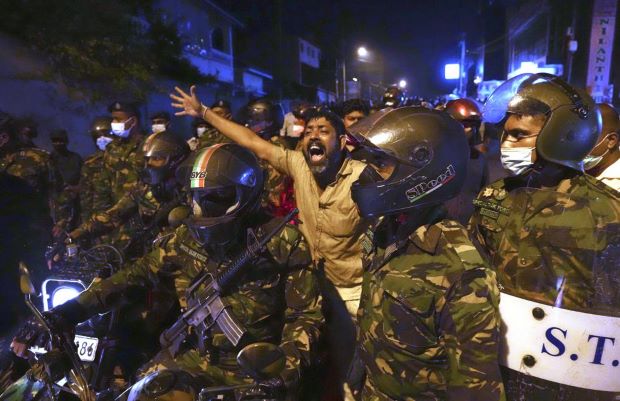At a crossroads: On Sri Lanka’s economic recovery

The widespread public unrest in Sri Lanka has taken on the dimensions of a political revolution of great import. It is apparent that it is driven by popular anger and a collective will that straddles all ethnicities. For a country once seen as having irreconcilable ethnic divisions, there is hope that the people will recognize the real provenance of their travails — an apathetic political leadership that wields great power without much accountability — as they come together on the streets to demand change and relief. The people seem to be demanding a wholesale regime change, and not tweaks.
As the protests escalate, the administration of President Gotabaya Rajapaksa and the government of his elder brother, Prime Minister Mahinda Rajapaksa, seem to have lost public support and the confidence of their political allies.
The Opposition has rejected the President’s call for a multi-party Cabinet, key allies such as the Sri Lanka Freedom Party (SLFP) have walked out of the ruling coalition, and the newly appointed Finance Minister did not deem it prudent to take charge.
It is an unusual stalemate on the political front, as it is clear that nothing short of the resignation of the Rajapaksa brothers will assuage public anger; but, at the same time, it is unclear if anyone will be willing to take charge amidst a seemingly insurmountable economic crisis. As over 40 legislators have walked out of the ruling alliance, the present regime faces a loss of majority in Parliament. The real question is whether the Opposition will be willing to form an alternative dispensation.
The urgency of the situation is beyond doubt. The country needs an economic recovery plan to approach international lenders and bring about macro-economic stability. And a concerned and accountable regime needs to be in place for this.
Economists have suggested that Sri Lanka may need a bridge loan while an external debt restructuring plan is put in place, but much depends on whether there is a credible leadership.
Sri Lanka is at a crossroads. Going one way may lead to a debt trap, sovereign default and possible bankruptcy. On the other hand, the present unrest provides an extraordinary opportunity to change its political and administrative paradigm.
Bloated government, excessive security expenditure, the profligate ways of those in power, lack of attention to domestic production and centralization of decision-making have all contributed to the mess. Much of this needs to change. No more should majoritarian mobilization be allowed to cover up political and economic failures. An inclusive outlook has to be fostered.
The people will have to realize that voting on emotional issues related to race and religion only helps the ruling class and seldom benefits them. Only such a momentous change on the political and social level will lead to their economic emancipation.
-The Hindu

